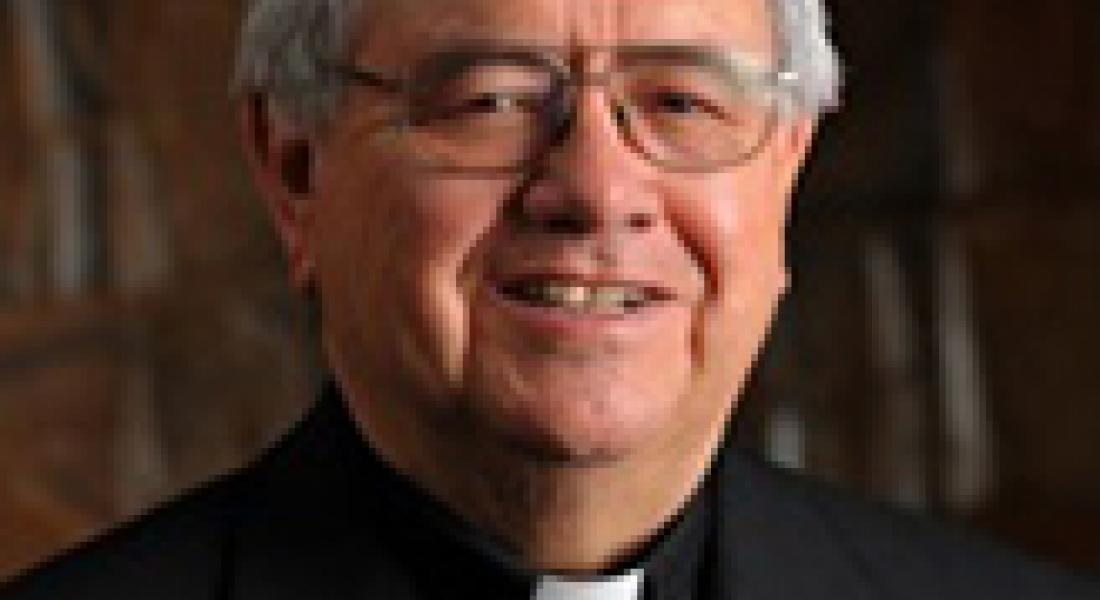
Anthropologist Arlene Dávila will visit the University of Notre Dame April 23–26 as the inaugural recipient of the Institute for Latino Studies' Virgilio Elizondo Distinguished Visiting Professorship.
The new visiting professorship is named in honor of Kellogg Institute faculty fellow Rev. Virgilio Elizondo, a senior professor in the Institute for Latino Studies.
"Fr. Elizondo's name and scholarship exemplify the rigorous academic direction that the Institute has been taking in the last three years," says ILS Director José Limón, the Notre Dame Professor of American Literature and Julian Samora Professor of Latino Studies.
Elizondo, the Notre Dame Professor of Pastoral and Hispanic Theology, is widely recognized as the "father of US Latino religious thought," and was hailed by Time magazine as one of the top spiritual innovators of the 21st century.
Anthropologist and Public Intellectual
"When we considered the possible invitees for launching this new program," Limón says, "the distinguished Professor Arlene Dávila immediately came to our minds."
A professor of anthropology and American studies at New York University, Dávila, "is one of the countrys leading Latino studies cultural anthropologists, but on that firm foundation, she does not hesitate to venture forth into interdisciplinary work ranging across history, media studies, the sociology of mobility, and popular culture—and she does so across several Latino groups," says Limón.
Timothy Matovina, professor of theology and executive director of ILS, adds that Dávila "has been praised as the 'finest, fiercest, and most piercing of our public intellectuals.'"
Dávila's research spans urban ethnography, the political economy of culture and media, creative economies and consumption, immigration, and geographies of inequality and race.
She is the author of five books, Culture Works: Space, Value and Mobility Across the Neoliberal Americas (2014); Latino Spin: Public Image and the Whitewashing of Race (2008); Barrio Dreams: Puerto Ricans, Latinos and the Neoliberal City (2004); Latinos, Inc.: The Marketing and Making of a People (2001); and Sponsored Identities: Cultural Politics in Puerto Rico (1997); and co-editor of Mambo Montage: The Latinization of New York (2001). Latino Spin won the 2010 Distinguished Book Award in Latino Studies from the Latin American Studies Association.
The visiting professorship includes a public lecture or performance, a symposium, presentations in Latino Studies classes, and meetings with graduate and undergraduate students to mentor them in their research projects and careers.
Dávila will be on campus from April 23–26, 2014. She will present a public lecture, "Locating Neoliberalism in Time, Space and Culture,'" at 4 p.m. on Thursday, April 24 in the Eck Center Auditorium, and lead a Young Scholars Symposium for advanced doctoral students and pre-tenured professors.
Created in 1999, the Institute for Latino Studies plays a vital role in fostering understanding of the U.S. Latino experience and seeks to prepare transformative leaders in education, the professions, the economy, civic affairs, faith, and family life.
Building upon the intellectual legacy of the late Julian Samora, a pioneering Latino scholar and professor in Notre Dame's Department of Sociology, the institute supports interdisciplinary initiatives in Latino studies as a key component of the Universitys academic mission.
Originally published at al.nd.edu





